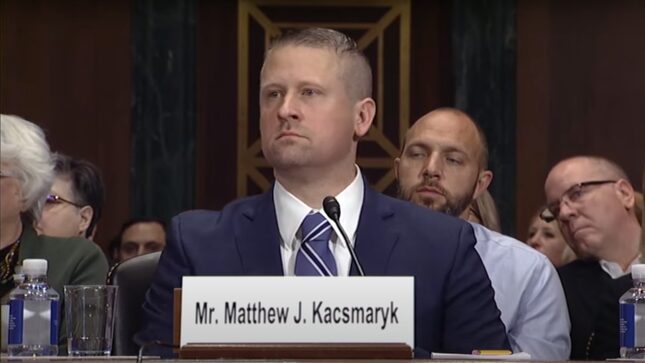Trump-Appointed Judge Bans the Abortion Pill Nationwide, Starting in 7 Days
Mifepristone has been FDA-approved for over 20 years—until anti-abortion activists handpicked right-wing Texas judge Matthew Kacsmaryk to take this case.
AbortionPolitics

On Friday evening—which happens to be Good Friday for Christians (this was likely deliberate)—Trump-appointed federal judge and devout Texas Christian Matthew Kacsmaryk issued a ruling that effectively bans the main abortion pill, mifepristone, nationwide. The ruling revokes the Food and Drug Administration’s approval of the drug, which has been used safely since the year 2000, effective one week from today, unless the federal government can successfully challenge it by then.
Kacsmaryk, a rabidly anti-abortion and anti-LGBTQ lawyer before Donald Trump nominated him to a lifetime seat on the federal bench in 2019, attempted to get around the criticism of withdrawing approval of a drug that was okayed over 20 years ago by blaming the FDA. He wrote that the agency “stonewalled judicial review” of mifepristone by ignoring anti-abortion activists’ petitions contesting the drug’s approval. “Had FDA responded to Plaintiffs’ petitions within the 360 total days allotted, this case would have been in federal court decades earlier. Instead, FDA postponed and procrastinated for nearly 6,000 days,” he wrote.
Within hours of Kacsmaryk’s decision, Biden’s Department of Justice filed a notice of appeal. Once the case is in appeals, the DOJ can take it to the Supreme Court.
Meanwhile, Kacsmaryk has certainly fulfilled his purpose. Anti-abortion activists strategically filed the federal lawsuit in a Texas district where Kacsmaryk is the only judge in order to ensure this outcome. Alliance Defending Freedom, a Christian legal group that wrote the state law the Supreme Court used to overturn Roe v. Wade, baselessly argue along with the plaintiffs in their suit that the FDA was wrong to approve mifepristone decades ago and wrong to make updates to that approval, like approving its use through 10 weeks of pregnancy, up from seven. Notably, they filed the lawsuit against the government after the six-year statute of limitations, and after Roe fell.
Kacsmaryk wasn’t the only federal judge to issue an opinion on Friday night. Thomas Rice, a judge for U.S. District Court, Eastern District of Washington, wrote that the FDA is barred from “altering the status quo and rights as it relates to the availability of Mifepristone” in states involved in the lawsuit. The other states involved are, in alphabetical order, Arizona, Colorado, Connecticut, Delaware, District of Columbia, Hawaii, Illinois, Maine, Maryland, Michigan, Minnesota, Nevada, New Mexico, Oregon, Pennsylvania, Rhode Island, and Vermont.
-

-

-

-

-

-

-

-

-

-

-

-

-

-

-

-

-

-

-

-

-

-

-

-

-

-

-

-

-

-

-

-

-

-

-

-

-

-

-

-








































